第6章 CHAPTER II(2)
I speak here of my introduction to Holland House, for although Lady Holland was then in the zenith of her ascendency, (it was she who was the Cabinet Minister, not her too amiable husband,) although Holland House was then the resort of all the potentates of Whig statecraft, and Whig literature, and Whig wit, in the persons of Lord Grey, Brougham, Jeffrey, Macaulay, Sydney Smith, and others, it was not till eight or ten years later that I knew, when I met them there, who and what her Ladyship's brilliant satellites were. I shall not return to Lady Holland, so I will say a parting word of her forthwith.
The woman who corresponded with Buonaparte, and consoled the prisoner of St. Helena with black currant jam, was no ordinary personage. Most people, I fancy, were afraid of her. Her stature, her voice, her beard, were obtrusive marks of her masculine attributes. It is questionable whether her amity or her enmity was most to be dreaded. She liked those best whom she could most easily tyrannise over. Those in the other category might possibly keep aloof. For my part I feared her patronage. I remember when I was about seventeen - a self-conscious hobbledehoy - Mr. Ellice took me to one of her large receptions. She received her guests from a sort of elevated dais. When I came up - very shy - to make my salute, she asked me how old I was. 'Seventeen,' was the answer. 'That means next birthday,' she grunted. 'Come and give me a kiss, my dear.' I, a man! - a man whose voice was (sometimes) as gruff as hers! - a man who was beginning to shave for a moustache! Oh! the indignity of it!
But it was not Lady Holland, or her court, that concerned me in my school days, it was Holland Park, or the extensive grounds about Charles Fox's house (there were no other houses at Addison Road then), that I loved to roam in. It was the birds'-nesting; it was the golden carp I used to fish for on the sly with a pin; the shying at the swans, the hunt for cockchafers, the freedom of mischief generally, and the excellent food - which I was so much in need of - that made the holiday delightful.
Some years later, when dining at Holland House, I happened to sit near the hostess. It was a large dinner party. Lord Holland, in his bath-chair (he nearly always had the gout), sat at the far end of the table a long way off. But my lady kept an eye on him, for she had caught him drinking champagne. She beckoned to the groom of the chambers, who stood behind her; and in a gruff and angry voice shouted:
'Go to my Lord. Take away his wine, and tell him if he drinks any more you have my orders to wheel him into the next room.' If this was a joke it was certainly a practical one.
And yet affection was behind it. There's a tender place in every heart.
Like all despots, she was subject to fits of cowardice - especially, it was said, with regard to a future state, which she professed to disbelieve in. Mr. Ellice told me that once, in some country house, while a fearful storm was raging, and the claps of thunder made the windows rattle, Lady Holland was so terrified that she changed dresses with her maid, and hid herself in the cellar. Whether the story be a calumny or not, it is at least characteristic.
After all, it was mainly due to her that Holland House became the focus of all that was brilliant in Europe. In the memoirs of her father - Sydney Smith - Mrs. Austin writes:
'The world has rarely seen, and will rarely, if ever, see again all that was to be found within the walls of Holland House. Genius and merit, in whatever rank of life, became a passport there; and all that was choicest and rarest in Europe seemed attracted to that spot as their natural soil.'
Did we learn much at Temple Grove? Let others answer for themselves. Acquaintance with the classics was the staple of a liberal education in those times. Temple Grove was the ATRIUM to Eton, and gerund-grinding was its RAISON D'ETRE.
Before I was nine years old I daresay I could repeat - parrot, that is - several hundreds of lines of the AEneid.
This, and some elementary arithmetic, geography, and drawing, which last I took to kindly, were dearly paid for by many tears, and by temporarily impaired health. It was due to my pallid cheeks that I was removed. It was due to the following six months - summer months - of a happy life that my health was completely restored.